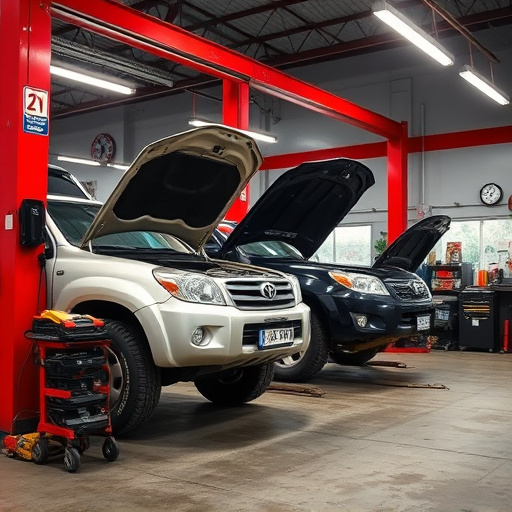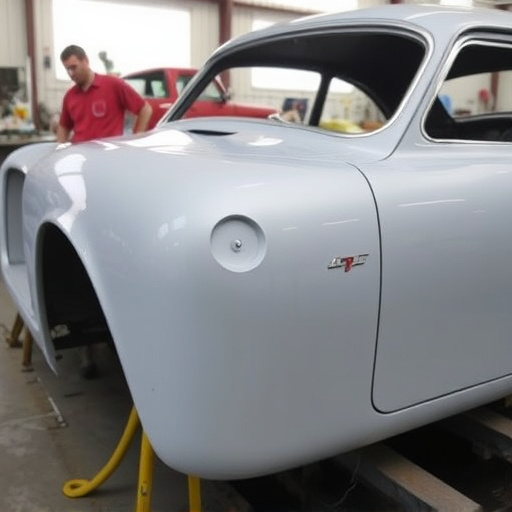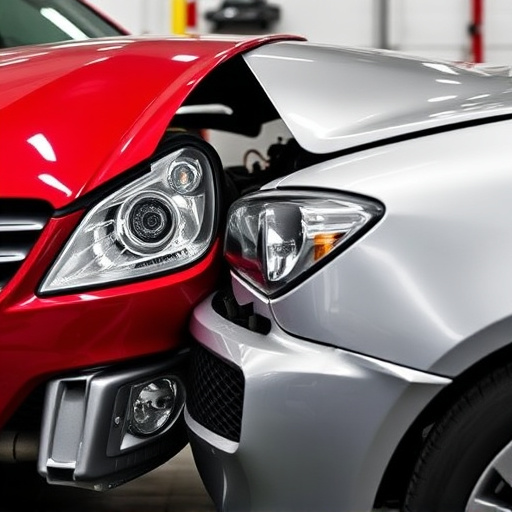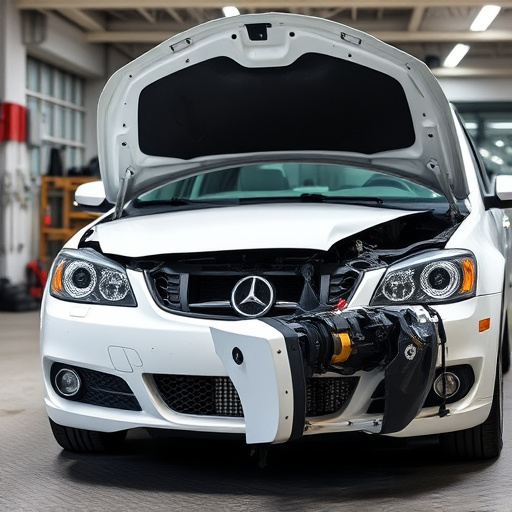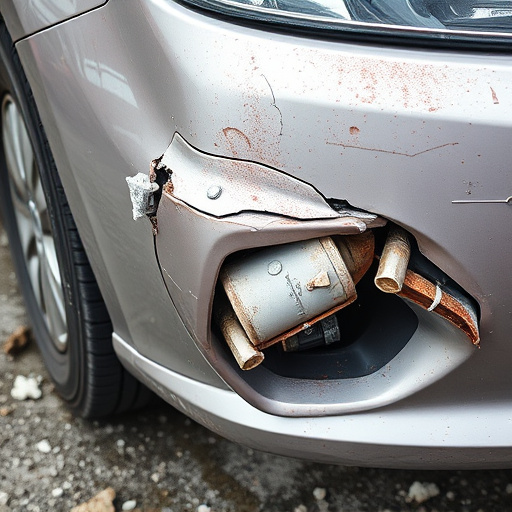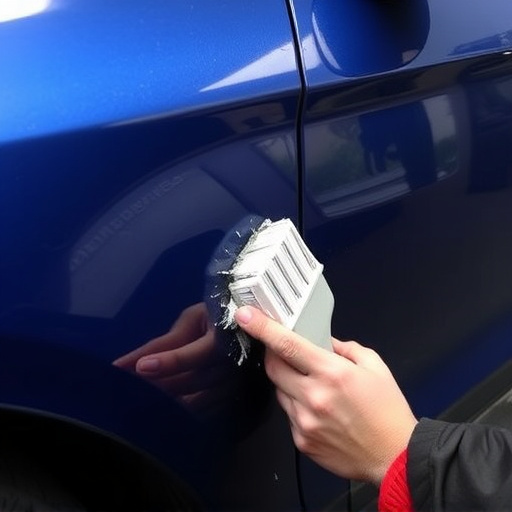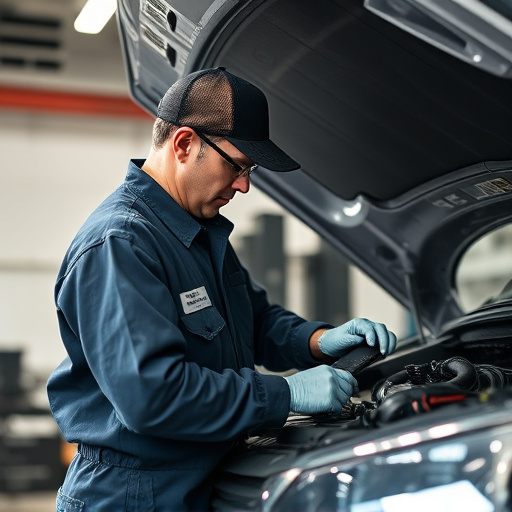Mercedes impact sensor calibration is a critical process for maintaining the safety and efficiency of Advanced Driver Assistance Systems (ADAS). Regular calibration ensures sensors accurately detect and interpret data from collisions, enabling essential features like automatic emergency braking and lane-keeping assist. Proper alignment prevents malfunctioning, enhances accident prevention, and aids in post-collision repairs, making it a vital component of modern vehicle safety. Specialized mechanics use advanced tools to maintain these sensors, extending their lifespan and ensuring reliable ADAS performance.
Mercedes impact sensor calibration is a critical aspect of ensuring the safety and effectiveness of Advanced Driver Assistance Systems (ADAS). This article delves into the intricate world of Mercedes impact sensor calibration, exploring its significance in ADAS functionality. We’ll uncover how precise calibration supports various safety interactions, enhances system reliability, and ultimately contributes to improved road safety. By understanding these key principles, vehicle owners and professionals alike can grasp the importance of regular calibration for optimal ADAS performance.
- Understanding Mercedes Impact Sensor Calibration
- The Role of Calibration in Advanced Driver Assistance Systems (ADAS)
- Benefits and Best Practices for Impact Sensor Calibration
Understanding Mercedes Impact Sensor Calibration
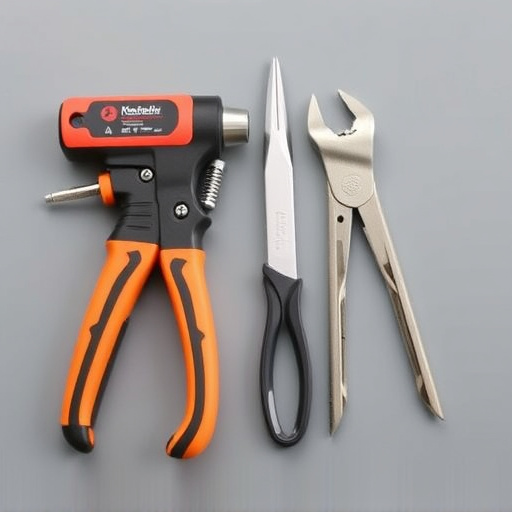
Mercedes impact sensor calibration is a critical process that ensures the safety and efficiency of Advanced Driver Assistance Systems (ADAS). These sensors play a pivotal role in detecting and assessing vehicle collisions, enabling advanced safety features to respond accordingly. Proper calibration guarantees that the system accurately interprets data from the impact sensors, facilitating seamless interactions with other ADAS components.
Improperly calibrated sensors can lead to malfunctioning safety systems, which could have severe consequences during a vehicle collision. Therefore, regular Mercedes impact sensor calibration is essential for maintaining optimal performance and ensuring the safety of drivers and passengers. This process involves meticulous adjustments to ensure the sensors’ accuracy, particularly when integrating with features like automatic emergency braking and lane-keeping assist.
The Role of Calibration in Advanced Driver Assistance Systems (ADAS)
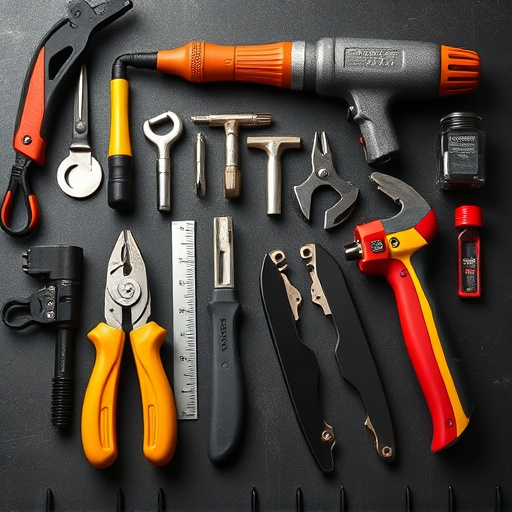
Mercedes impact sensor calibration plays a pivotal role in ensuring the seamless functioning of Advanced Driver Assistance Systems (ADAS). ADAS relies on accurate data from various sensors to enable features like automatic emergency braking, lane-keeping assist, and adaptive cruise control, enhancing overall vehicle safety. Regular calibration ensures these sensors provide precise measurements, allowing for optimal performance and reliable interactions with the driver and road conditions.
Proper calibration aligns the Mercedes impact sensor with the vehicle’s dynamic parameters, enabling it to detect and interpret changes in speed, direction, and external impacts accurately. This is crucial not just for preventing accidents but also for facilitating efficient repairs post-collision, including auto glass replacement, bumper repair, or vehicle dent repair, by providing precise data to support accurate assessments and repairs.
Benefits and Best Practices for Impact Sensor Calibration

Mercedes impact sensor calibration plays a pivotal role in enhancing the safety features of modern vehicles, particularly those equipped with Advanced Driver-Assistance Systems (ADAS). Proper calibration ensures that sensors accurately detect and respond to collisions or potential impacts, enabling critical safety interactions. This process aligns the sensors’ data with the vehicle’s computer system, ensuring precise deployment of airbags, active safety systems, and other emergency measures.
Best practices for impact sensor calibration include regular maintenance by authorized mechanics who specialize in auto body repairs. Scrutinizing and fine-tuning these sensors is essential, especially after potential accidents or when significant changes are made to the vehicle’s structure. Using advanced diagnostic tools, auto repair shops can perform detailed assessments, identify any drift or deviation in sensor readings, and bring them back to optimal performance. This proactive approach not only extends the lifespan of safety systems but also ensures optimal protection for drivers and passengers, making it a crucial aspect of responsible vehicle maintenance.
Mercedes impact sensor calibration plays a pivotal role in ensuring the safety and effectiveness of Advanced Driver Assistance Systems (ADAS). By accurately calibrating these sensors, vehicles can accurately detect and respond to impacts, enhancing overall driving safety. This process supports all ADAS interactions, from collision avoidance systems to advanced airbag deployment, ultimately contributing to a more secure motoring experience for everyone on the road.


